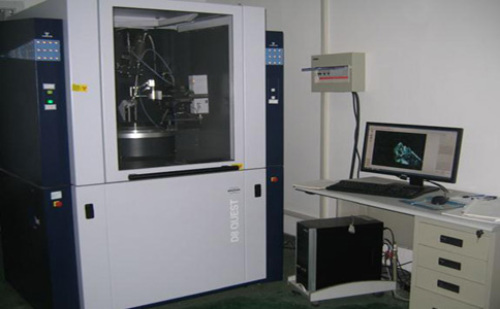Guidance: The notice is clear that from January 1, 2016 to December 31, 2020, projects for oil (natural gas) extraction in China's oceans cannot be produced at the import or the performance cannot meet the requirements, and are directly used for mining operations. The equipment, instruments, spare parts and special tools within the scope of the list of tax-exempt materials shall be exempted from import duties and value-added tax for import within the specified tax-free import quota. According to the latest news, the Ministry of Finance, the General Administration of Customs, and the State Administration of Taxation issued two circulars in a row to clarify the taxation policy on the exploitation of oil (natural gas) imported materials in certain areas of China's land and during the “13th Five-Year Plan†period. There are 297 items in the list of tax-exempt materials, involving instruments such as x-ray diffractometers and laser particle size analyzers.
Surface grinding is used to produce a smooth finish on flat surfaces. It is a widely used abrasive machining process in which a spinning wheel covered in rough particles (grinding wheel) cuts chips of metallic or nonmetallic substance from a workpiece, making a face of it flat or smooth.
Surface grinding is the most common of the grinding operations. It is a finishing process that uses a rotating abrasive wheel to smooth the flat surface of metallic or nonmetallic materials to give them a more refined look by removing the oxide layer and impurities on work piece surfaces. This will also attain a desired surface for a functional purpose. Surface Grinding,Surface Grinding Parts,Precision Grinding Parts,Core Parts Of Mechanical Dayue Precision Technology (Dongguan) Co., Ltd. , https://www.dayuechn.com
The specific areas on land referred to in the notification are: deserts in the territory of China, deserts in the Gobi, and Sino-foreign cooperative exploitation (referring to exploration and development, similarly hereinafter). Nationally approved land petroleum (natural gas) winning bid blocks (cooperative blocks for foreign negotiations) Consider the winning bid block). The oceans referred to are: China's inland seas, territorial seas, continental shelves, and other marine resources under the jurisdiction of the jurisdiction (including shallow beach).
The circular made it clear that from January 1, 2016 to December 31, 2020, self-operated projects for oil (natural gas) extraction operations in deserts and deserts within the territory of China’s territory cannot be produced at the importation site or the performance cannot meet the requirements. The equipment, instruments, spare parts, and special tools within the scope of the list of tax-exempt materials directly used for mining operations shall be exempted from import duties within the specified tax-free import quotas; and the bid for the onshore oil (natural gas) approved by the state The Sino-foreign cooperation projects for oil (natural gas) production within the block shall be exempted from imports within the scope of the specified duty-free import quota for imports within the country that cannot be produced or whose performance does not meet the requirements and are directly used in the list of duty-free materials for mining operations. Import tariffs and import value-added tax.
The surface grinder is composed of an abrasive wheel, a workholding device known as a chuck, and a reciprocating or rotary table. The chuck holds the material in place while it is being worked on. It can do this one of two ways: ferromagnetic pieces are held in place by a magnetic chuck, while non-ferromagnetic and nonmetallic pieces are held in place by vacuum or mechanical means. A machine vise (made from ferromagnetic steel or cast iron) placed on the magnetic chuck can be used to hold non-ferromagnetic workpieces if only a magnetic chuck is available.
Factors to consider in surface grinding are the material of the grinding wheel and the material of the piece being worked on.
Typical workpiece materials include cast iron and mild steel. These two materials don't tend to clog the grinding wheel while being processed. Other materials are aluminum, stainless steel, brass and some plastics. When grinding at high temperatures, the material tends to become weakened and is more inclined to corrode. This can also result in a loss of magnetism in materials where this is applicable.